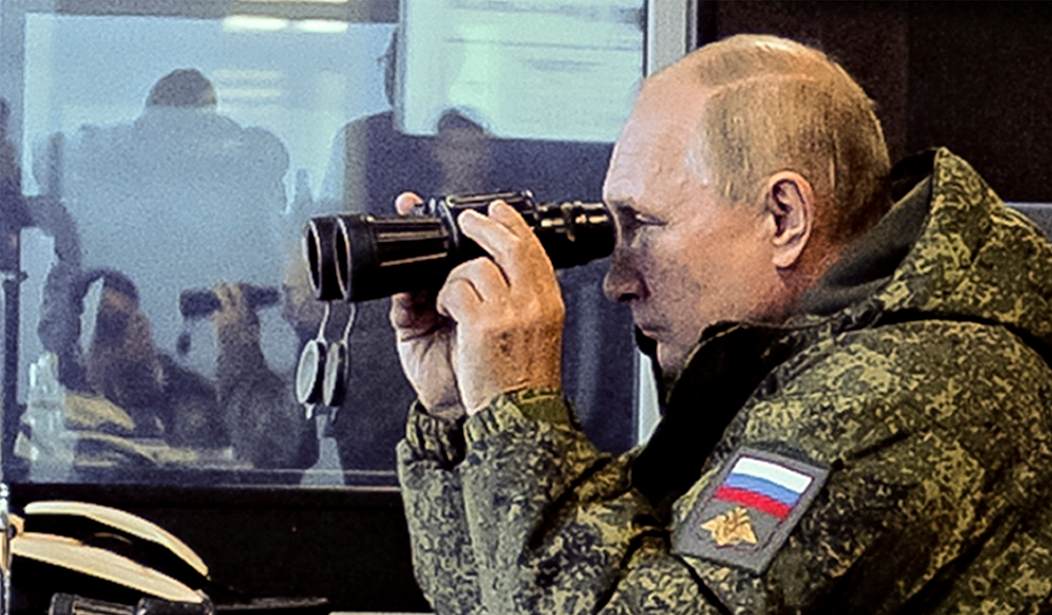When 2022 began, Vladimir Putin's Russia was fighting a slow but deadly war with Ukraine -- a war to restore what Putin believed was Russia's historically legitimate empire. In the slow war, the Kremlin could control the level of battlefield violence and gauge the economic costs. For example, Russia could slowly destroy Ukraine's eastern provinces and largely slip international political and economic sanctions.
As 2023 begins Vlad's Russia is locked in a grinding war that Russia is definitely not winning -- and arguably, Ukraine is.
What a difference a year makes?
At the very obvious level of Russia versus Ukraine, the answer is yes. Russia is paying enormous costs in lives and rubles for Putin's megalomania and misjudgments. I discussed both in last week's column.
But at a global level, human affairs are still tormented by a sticky list of Big Deadly Problems that have no simple answers.
In January 2022 I wrote a column addressing "four strategic challenges to the post-World War II international order." While that's a reasonable introduction in an essay, a week after I wrote it, I said that line requires qualification.
Here are the four challenges, and I pointed out they are not in rank order. They all have immense significance. Sadly, they are not discrete. They entwine.
Challenge No. 1: Imperialist powers hellbent on recovering lost empires (and fulfilling the grandiose dreams of their current leaders.) 2023 comment: Russia in Ukraine, China threatening Taiwan.
Challenge No. 2: Flailing states, failed states and totally fake states immersed in anarchic violence that spills over political borders. (Note: Flailing means collapsing. In fake states, local thugs control the capital, the U.N. seat and little else.) 2023 comment: During the past year Mexico has been exposed as a borderline flailing state. (Pun intended.)
Challenge No. 3: Radical, militant, megalomaniacal dictatorships attempting to acquire weapons of mass destruction (nuclear, chemical, biological) and the ways and means to use them to kill with history-changing, lethal surprise. 2023 comment: Iran is closer to a nuke, but the Iranian regime is flailing (see Challenge No. 2).
Recommended
Challenge No. 4: The pervasive corruption of influential but venal individuals and venal institutions in democratic nations. The corruption is so internally corrosive to these nations that timely and effective political and military response to Challenges Nos. 1 through 3 is systemically delayed, undermined or immobilized.
2023 comment: 2022's Twitter revelations exposed extraordinary corruption in the U.S., in the FBI, the so-called legacy media and the Biden family in particular. Hunter Biden's laptop is not Russian disinformation; it is hard and detailed evidence that exposes corruption tainting the highest levels of American governance.
Major 2023 U.S. Diplomatic Penalty for Corruption: Hunter Biden's blatant corruption has real-world national security costs. If defending Ukraine is a U.S. security interest -- and I think it is -- then the Biden family's corrupt activities and the government's failure to penalize their corruption undermines American efforts to address Ukrainian economic corruption.
So why did I decide the challenges to the "international order" sentence needed a finer aim?
The trick word is "order."
The post-WWII international order never managed to "order" Challenges No. 2, 3 and 4. The U.S.-dominated world, with the United Nations overlay, attempted to appease, buy off, ignore or suppress them. As for Challenge No. 1, the big grab for empire, the Cold War's nuclear standoff froze or suppressed it in an odd manner. Little hot wars were waged on the periphery -- Southeast Asia, Central and South America, Africa, the Middle East.
Time to introduce Challenge No. 5: Big Debt. 2022's hyperinflation and government budget excess justify it.
For the last two decades Greece has been Big Debt's poster child. Greek governments violated fiscal agreements and borrowed money they could not repay. The debt became unsustainable.
Based on GDP, resources and -- even post-COVID-19 -- work ethic, America has yet to face an appalling Greece-like debt crisis.
Communist China threatens the world. That said, America's own structural debt is the biggest self-inflicted threat the U.S. faces.

























Join the conversation as a VIP Member